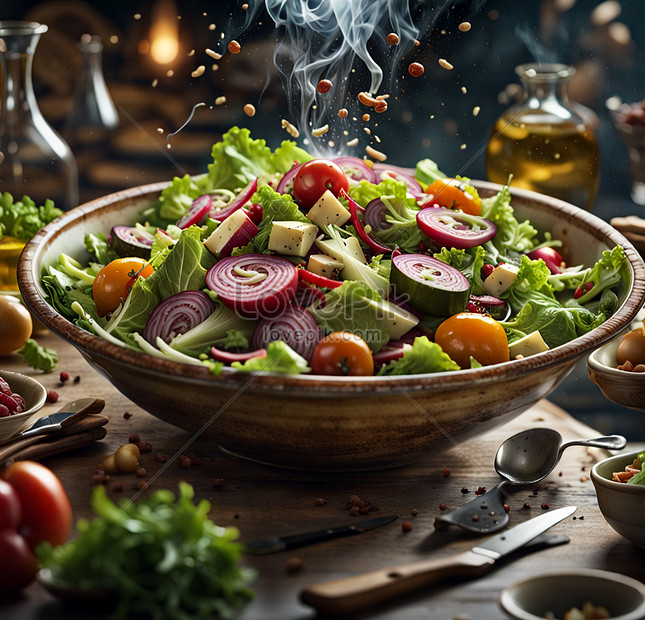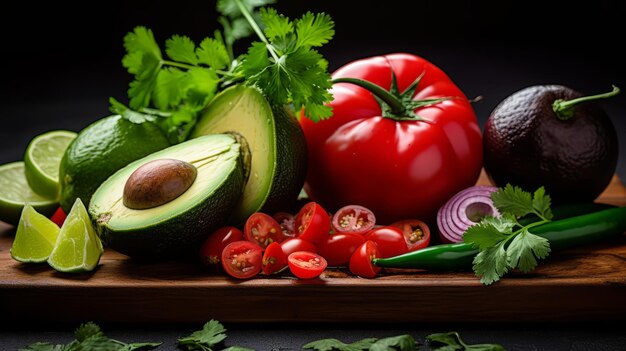Introduction to Mediterranean Cuisine
The Mediterranean region boasts a rich culinary heritage influenced by diverse cultures and a bounty of fresh, locally sourced ingredients. Mediterranean cuisine is characterized by its emphasis on wholesome, flavorful dishes that celebrate simplicity, freshness, and a harmonious blend of flavors.
Fresh and Flavorful Ingredients
Emphasis on Olive Oil, Fresh Herbs, and Citrus Fruits
Mediterranean cuisine relies heavily on extra virgin olive oil, renowned for its health benefits and distinct flavor. Fresh herbs like oregano, thyme, and basil, along with the vibrant zest of citrus fruits, elevate the taste of Mediterranean dishes.
Utilization of Seafood and Abundant Vegetables
Seafood plays a significant role in Mediterranean cuisine, offering a variety of flavors and textures. The region’s abundance of vegetables like tomatoes, eggplants, peppers, and zucchini are staples, contributing to vibrant and nutritious dishes.
Influence of Grains, Legumes, and Nuts
Grains like couscous, bulgur, and farro, combined with legumes such as chickpeas and lentils, form the foundation of many Mediterranean meals. Nuts like almonds and walnuts add texture and richness to dishes.
Delectable Mediterranean Recipes
Classic Greek Salad with a Twist
The classic Greek salad receives a modern twist with the addition of ingredients like kale, quinoa, or avocado, elevating this refreshing and colorful salad to new heights.
Zesty Lemon-Herb Grilled Chicken
Tender chicken marinated in a blend of Mediterranean herbs, garlic, and zesty lemon juice, then grilled to perfection, offers a burst of flavors in every bite.
Creamy Hummus with a Variety of Toppings
Creamy hummus, a beloved Mediterranean dip made from chickpeas, tahini, and olive oil, serves as a versatile canvas for a variety of toppings like roasted red peppers, pine nuts, or olives.
Exploring Flavor Profiles
Balancing Tangy and Savory Flavors
Mediterranean cuisine excels in achieving a delicate balance between tangy and savory flavors, incorporating ingredients like feta cheese, olives, and sun-dried tomatoes to create this harmony.
Incorporating Herbs and Spices
Herbs and spices like rosemary, oregano, cinnamon, and cumin infuse Mediterranean dishes with depth and complexity, enhancing the overall taste profile.
Enhancing Dishes with the Mediterranean Trinity
The holy trinity of garlic, lemon, and olive oil forms the cornerstone of Mediterranean cooking, imparting a distinct aroma and flavor to various dishes.
Cultural Significance and Health Benefits
Mediterranean Lifestyle and Well-being
The Mediterranean lifestyle emphasizes leisurely dining experiences, communal meals, and an active lifestyle, contributing to overall well-being and a sense of community.
Nutritional Benefits of the Mediterranean Diet
The Mediterranean diet, rich in fruits, vegetables, olive oil, and fish, is associated with numerous health benefits, including improved heart health and longevity.
Culinary Traditions and Social Aspects
Mediterranean meals are often communal, reflecting the cultural importance of food as a means of social connection, celebration, and sharing.

Conclusion
Mediterranean cuisine, with its emphasis on fresh and flavorful ingredients, offers a tantalizing array of dishes that celebrate the region’s culinary heritage. From vibrant salads to zesty grilled meats and creamy dips, these recipes embody the essence of Mediterranean flavors and lifestyle.
FAQs
- What makes the Mediterranean diet so healthy?The Mediterranean diet is rich in fruits, vegetables, whole grains, fish, and olive oil, providing essential nutrients, antioxidants, and healthy fats linked to improved heart health and overall well-being.
- Are there variations of Mediterranean cuisine across the region?Yes, Mediterranean cuisine varies across countries bordering the Mediterranean Sea, showcasing unique local ingredients, flavors, and culinary traditions specific to each region.
- Can Mediterranean-inspired recipes accommodate dietary restrictions like vegetarian or gluten-free?Absolutely! Many Mediterranean dishes can be adapted to accommodate various dietary preferences, offering plenty of options for vegetarians, vegans, and those following a gluten-free diet.
- What are some other traditional Mediterranean dishes worth trying?Other traditional Mediterranean dishes include paella from Spain, moussaka from Greece, tagine from Morocco, and various seafood-based dishes from Italy, offering a diverse range of flavors.
- How can one incorporate the Mediterranean lifestyle into their daily routine?Embrace aspects such as enjoying meals with family and friends, incorporating fresh produce and olive oil into cooking, and staying physically active to embody the Mediterranean lifestyle.


